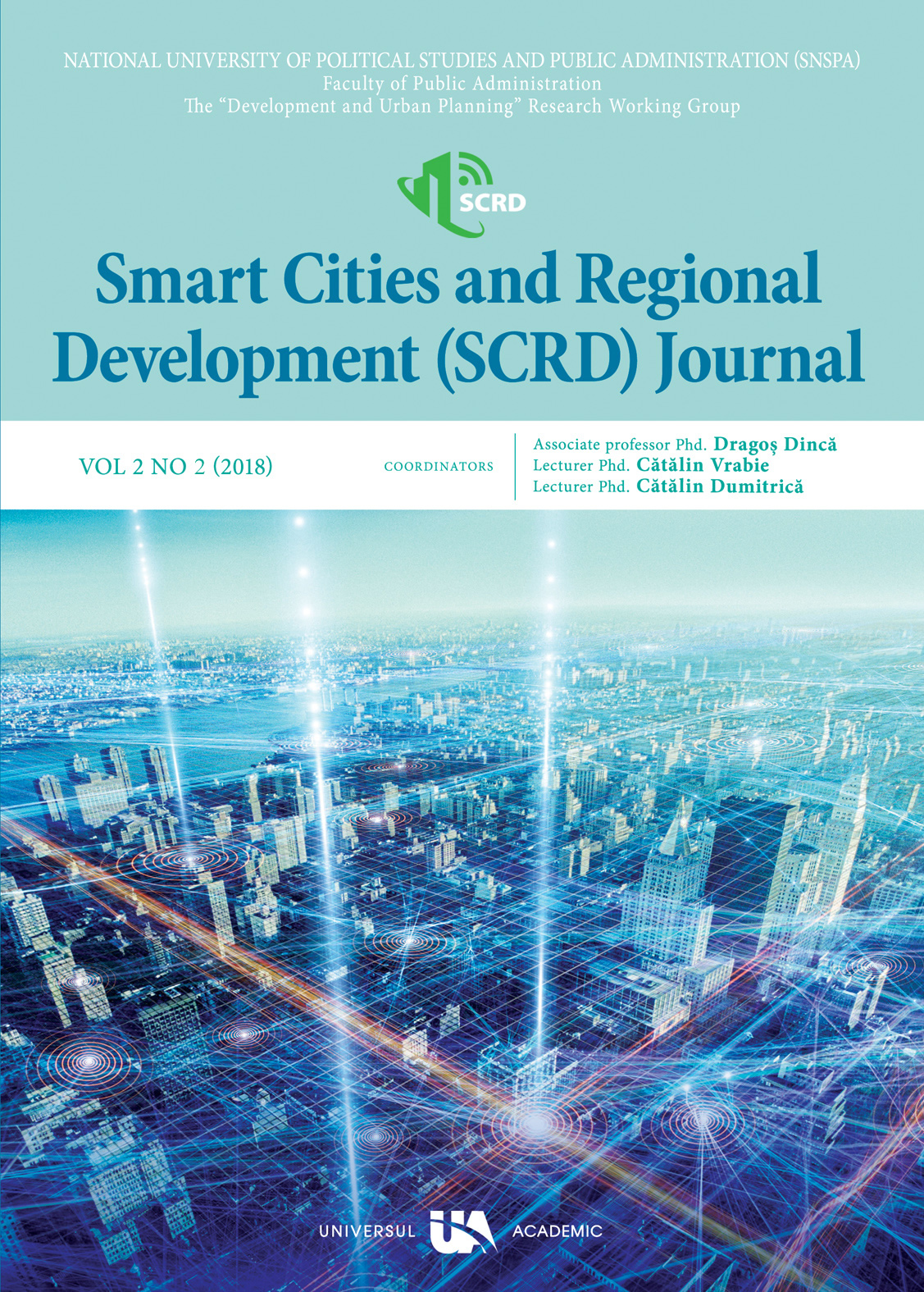The perspectives of sustainable territorial development in smart cities
The perspectives of sustainable territorial development in smart cities
Author(s): Karina RADCHENKOSubject(s): Social Sciences, Economy, Geography, Regional studies, Regional Geography, Environmental Geography, Economic development, Public Finances, Socio-Economic Research
Published by: Editura Pro Universitaria
Keywords: SDGs; sustainability; smart transformations;smartification
Summary/Abstract: Objectives This paper aims to define the perspectives and peculiarities of optimizing territorial development and increasing sustainability in a smart city context. The importance of localizing the UN SDGs, the increasing popularity of the smart city concept associated with the ICT revolution as well as the need of finding out-of-the-box solutions to resolve the challenges faced by communities make this research scope highly relevant. Prior work The previous research shows that the smart city approach implementation may have sustainability-oriented and sustainability-lacking scenarios. The smart city concept may not always have linear impacts on sustainability. It is needed to further contribute to the scientific discussion focusing on particular smart city cases to provide recommendations for municipalities on how the territorial development can be sustainably optimized. Methodology The paper considers the practical cases of the three smart cities such as Espoo (Finland), Dundee (UK) and Bristol (UK). The literature review, analysis of public sources, case study, and in-depth interviews with the representatives of these cities are used to analyze, in terms of sustainability, the dimensions such as the strategic positioning, advancements and challenges, partnership and stakeholders involvement. Results It is determined that sustainable territorial development has huge potential of being reached and accelerated within the smart city environment. However, unleashing such potential may be threatened by lack of a particular sustainability agenda, misinterpretation of smart city as only a technological issue while the sustainability and inclusivity by-design vectors are missed. Overall, the strategies and practices of territorial development in these cities were considered. The concluding recommendations are likely to be useful for municipal authorities of other territories while intentionally applying smart solutions to reach more sustainable human-centric community development that will be beneficial for the vast number of Quadruple Helix stakeholders.
Journal: ORAȘE INTELIGENTE ȘI DEZVOLTARE REGIONALĂ
- Issue Year: VI/2022
- Issue No: 03
- Page Range: 59-72
- Page Count: 14
- Language: English

